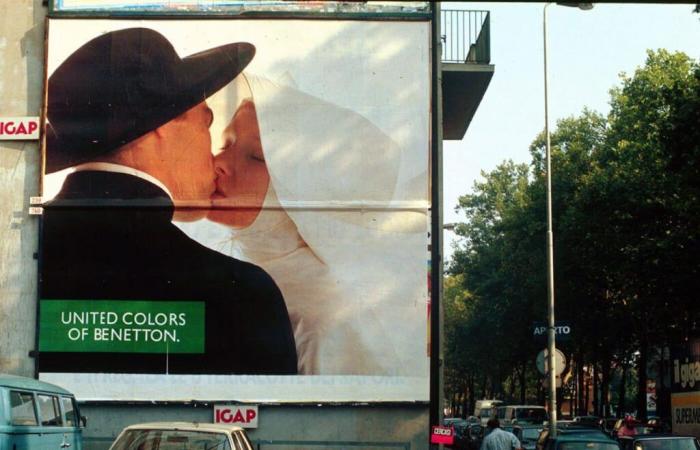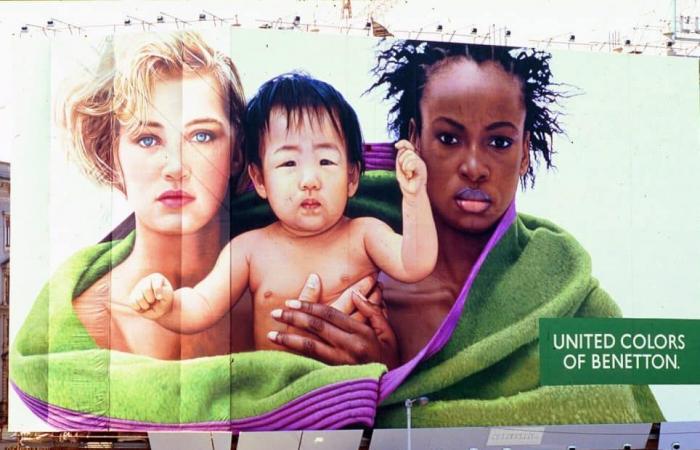A priest kissing a nun. Portraits of death row inmates in the United States. A young man with AIDS on his deathbed. A bird entangled in a sea of oil. Photographer for several decades for the Italian clothing brand Benetton, Oliviero Toscani multiplied the shocking imagesillustrating the greatest struggles of the end of the 20th centurye century.
Disappeared this Monday January 13 at the age of 82victim of a rare disease (amyloidosis, which made him lose 40 kilos in one year), the man was hailed by the Italian Minister of Culture Alessandro Giuli as “one of the greatest artists of the contemporary photography.” He leaves behind him notable advertising campaignswhere most of the time no Benetton clothing appears but which associate the brand with strong values. “Photography becomes art when it provokes a reaction in us, whether it is interest, curiosity or attention,” he explained in 2010.
The shock of images
Oliviero Toscani, the famous Benetton advertising campaign photographer
i
His photographs thus reflect his commitment against racism, pollution, the death penalty, homophobia or prejudice of all kinds, but also for love and friendship between people. It is also by the minimalist image a bouquet of varied flowers, ordinary or elegant (tulips, roses, wildflowers), immortalized in 1989, which the brand released this morning tribute to his photographer on the social network Instagram, writing: “To explain certain things, words are not enough. You taught us that. »
However, their relationship was not good. In 2020, Benetton announced that it had ended their collaborationreacting to comments made by the artist during a radio show on following the collapse of the Genoa bridgewhich left 43 dead in August 2018. “But who cares if a bridge collapses? “, he exclaimed, before later apologizing: “I, like everyone else, am interested and outraged by this tragedy, but it is absurd that certain journalists are calling me to account. »
An “enfant terrible” of fashion and advertising photography
His photographs remain today, iconic shots who have marked the history of advertising. Recently brought together by the Museum für Gestaltung in Zurich – city where Oliviero Toscani studied at the Kunstgewerbeschule (School of Applied Arts) – under the title “Photography and provocation”they have almost systematically opened the way to numerous and heated debates on the commercial use of human suffering…
Benetton advertising campaign by Oliviero Toscani in Milan in 1991
i
And also have, on the contrarygenerated questions about the importance for big brands to invite their consumers to think. Rich in 500 photos, the Zurich retrospective was in any case the portrait of an “enfant terrible”as curator Christian Brändle greedily nicknamed it.
Son of a photo reporter, Toscani left Europe for Andy Warhol’s New York, inviting street photography to the heart of the Factory, then made an internationally recognized name as fashion and advertising photographerespecially for Jean-Charles de Castelbajac since 1976. A singular spirit which has shaken up well-established codes, and raised the communication of a simple clothing brand to the status ofvisual culture icon from the 1990s.







